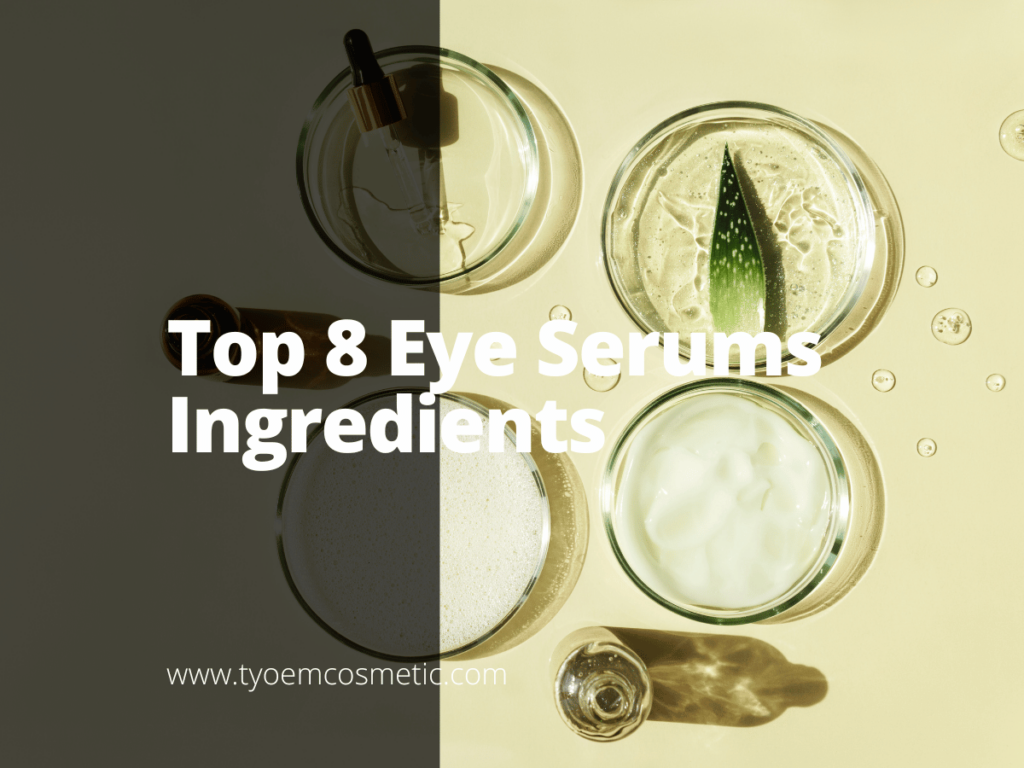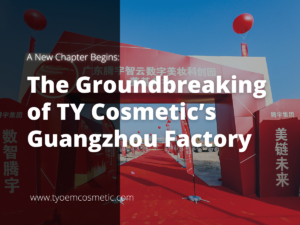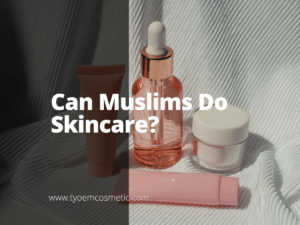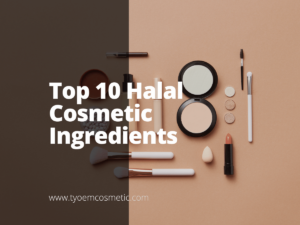Have you ever wondered what makes an eye serum exceptionally effective? The secret lies in the formulation of eye serum ingredients, each playing a role in rejuvenating and protecting the delicate skin around the eyes.
Our comprehensive list is carefully compiled based on extensive research and dermatological insights, ensuring that each ingredient offers proven benefits.
Here’s a sneak peek at what’s to expect from eye serum ingredients:
- Hyaluronic Acid
- Retinol
In this ultimate guide, discover the intricacies of each ingredient and how they collectively contribute to the efficacy of eye serums.
Read on for a comprehensive exploration of these game-changing components.
1. Hyaluronic Acid
Hyaluronic Acid is a powerhouse ingredient in eye serums, known for its exceptional hydration properties. Here are the key aspects to consider:
Benefits of Hyaluronic Acid:
- Intense Hydration: Hyaluronic Acid binds water to the skin, providing essential hydration. This property is crucial for maintaining the skin’s plumpness and preventing dryness.
- Reduces Fine Lines: By plumping the skin, it visibly reduces the appearance of fine lines and wrinkles. This effect is particularly beneficial for the delicate under-eye area.
- Enhances Skin Elasticity: Regular use of Hyaluronic Acid improves skin elasticity, giving a firmer and more youthful appearance. According to Everyday Health, skin tightness also improved by 13 to 30 percent. Enhanced elasticity also helps in preventing new fine lines.
- Promotes Healing: It supports the skin’s healing process, making it a valuable component in post-procedural care products. This aspect is especially important for products targeting sensitive skin.
- Suitable for All Skin Types: Its gentle nature makes Hyaluronic Acid suitable for all skin types, including sensitive skin. This versatility is essential for formulators targeting a broad market.
- Boosts Skin Health: Strengthens the skin’s natural barrier, protecting against pollutants and other environmental stressors. A strong barrier is key to overall skin health and resilience.
- Non-Comedogenic: It does not clog pores, ensuring its suitability for products targeting acne-prone skin. A dermatologist I know says that this non-comedogenic property allows for use in wide skincare formulations.
Side Effects and Precautions:
- Purity is Essential: Using high-grade Hyaluronic Acid is crucial to minimize the risk of skin irritations. Purity ensures that the ingredient remains gentle and effective.
- Avoid Overuse: Over-application can lead to skin congestion or puffiness, a concern particularly around the delicate eye area. Proper formulation should consider the optimal amount for desired results.
- Allergy Awareness: Skin experts say that although rare, allergic reactions to Hyaluronic Acid can occur. Formulators should consider conducting patch tests to ensure product safety for sensitive skin.
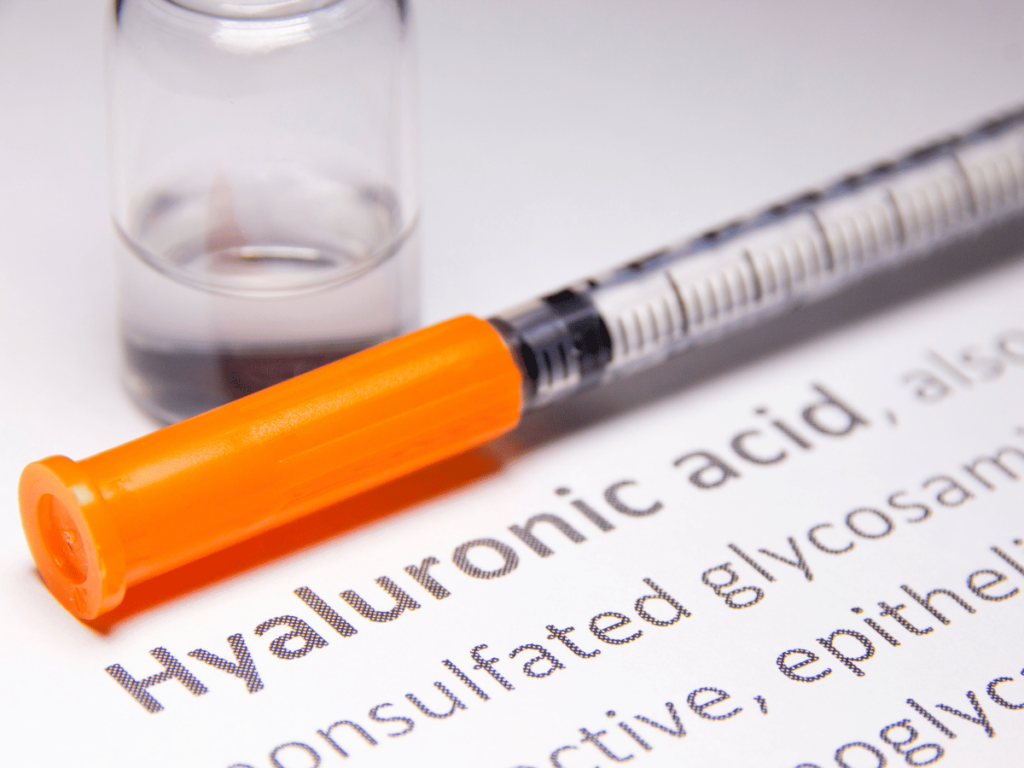
2. Retinol
Retinol is a vital ingredient in anti-aging skincare, particularly beneficial for the delicate under-eye area. Here’s what to consider in terms of Retinol’s usage:
Benefits of Retinol:
- Stimulates Collagen Production: Retinol enhances collagen production, crucial for reducing the appearance of fine lines and wrinkles around the eyes. It prevents sagging, especially in the under-eye area.
- Accelerates Skin Renewal: It promotes faster cell turnover, revealing fresher, smoother skin, and helping to diminish signs of fatigue or aging under the eyes. This revitalizes tired-looking eyes.
- Improves Skin Texture: Regular application of Retinol in eye serums leads to refined skin texture, offering a more youthful look. It can significantly enhance the effectiveness of makeup application under the eyes.
- Diminishes Dark Circles: Retinol’s ability to rejuvenate skin can reduce the pigmentation of dark circles; for example, consistent use can lighten dark under-eye areas over time. I have seen its good effect personally.
- Anti-Aging Effects: Its properties help visibly reduce signs of aging, making it a go-to ingredient for mature skin eye serums. These are particularly appealing in products marketed towards an older demographic.
- Reduces Sun Damage: Retinol aids in repairing visible damage caused by UV exposure, which is particularly important for the thin skin around the eyes.
- Pore Refining: It helps in minimizing the appearance of pores, contributing to smoother skin under the eyes. Smaller pores contribute to a more uniform and appealing skin texture, enhancing the overall appearance.
Side Effects and Precautions:
- Sensitivity to Sunlight: Using Retinol can increase the skin’s sensitivity to the sun, necessitating the use of sun protection during the day. Remember, it’s always better to be safe than sorry when it comes to sun exposure!
- Initial Irritation: Some users might experience dryness or irritation when first using Retinol, suggesting a gradual introduction into eye care routines. A little goes a long way!
- Not Suitable for All Skin Types: While beneficial, Retinol might not be suitable for extremely sensitive or eczema-prone skin types. It’s all about finding what works for your unique skin.
3. Peptides
Peptides are essential for their skin-repairing and anti-aging properties in eye serum formulations. Consider the following elements when using peptides:
Benefits Peptides:
- Collagen Stimulation: Peptides encourage the skin to produce more collagen, vital for reducing wrinkles and improving skin firmness around the eyes. Trust me, your skin will thank you for this!
- Improves Skin Barrier: Strengthening the skin barrier, peptides offer better protection and resilience for the delicate eye area. A strong skin barrier is crucial for serums designed for daily environmental exposure and stress.
- Enhances Elasticity: Regular application of peptides in eye serums can significantly improve the skin’s elasticity, reducing sagging and fine lines.
- Reduces Fine Lines: Peptides help in smoothing out fine lines, offering a rejuvenated appearance to the under-eye skin. It contributes to a more rested and vibrant appearance, a key selling point in eye care products.
- Skin Firming: Their firming effect on the skin makes the under-eye area appear more toned and youthful. Firmer skin under the eyes is often associated with a more alert appearance.
- Hydration Boost: Peptides aid in maintaining skin hydration, which is crucial for preventing dryness and maintaining a healthy under-eye area. For instance, peptide-rich serums can provide enhanced moisture retention for dry skin types.
- Skin Repair: Effective in repairing skin damage, peptides are particularly beneficial for thin and often stressed skin around the eyes.
Side Effects and Precautions:
- Potential Allergies: Rarely, some individuals might experience allergic reactions to specific peptides in eye serums.
- Varied Efficacy: The effectiveness of peptides can vary based on the formulation, skin type, and other active ingredients. Remember, what works wonders for one may not be for another; it’s all about finding the right formula for your skin type.
- Overuse Caution: Excessive use of peptides might lead to skin sensitivity, a significant consideration for products targeting the under-eye area.
Here’s a table highlighting the caution necessary when using peptides in skincare, especially for sensitive areas like under the eyes:
| Aspect | Description | Consideration |
| Overuse of Peptides | Using peptides in excess can cause skin sensitivity. | Important to use peptide-based products in moderation. |
| Sensitivity Concerns | Skin sensitivity can be a reaction to overuse. | Particular caution is needed for delicate areas like under the eyes. |
| Targeted Under-Eye Products | Products for the under-eye area often contain peptides. | Should be formulated and used carefully to avoid sensitivity issues. |
| Importance of Moderation | Balancing the use of peptides in skincare routines. | Ensures effectiveness without overloading the skin and causing irritation. |
4. Antioxidants
Antioxidants are crucial for protecting the skin, especially in the under-eye area. Here’s an overview of key considerations for antioxidants in eye serums:
Benefits of Antioxidants:
- Neutralizes Free Radicals: They offer protection against oxidative stress caused by pollution and UV rays, preserving the skin’s youthful appearance. A true guardian of the skin!
- Reduces Signs of Aging: Antioxidants slow the appearance of aging signs like fine lines, wrinkles, and dullness in the under-eye area.
- Enhances Skin Health: Their protective nature helps maintain overall skin health and vitality, crucial for the thin skin around the eyes.
- Improves Skin Tone: Regular use of eye serums can even out skin tone, particularly beneficial for reducing dark circles and uneven pigmentation.
- Soothing Effect: Many antioxidants possess anti-inflammatory properties, helping to soothe and calm the skin and reduce puffiness around the eyes.
- Boosts Collagen Production: Some antioxidants, like Vitamin C, stimulate collagen production, essential for maintaining skin elasticity and firmness.
- Protects Against Sun Damage: Eye serums with antioxidants, like those developed by TY Cosmetic, provide an added layer of protection against sun-induced aging and damage.
Side Effects and Precautions:
- Possible Irritation: Potent antioxidants might cause irritation, especially in sensitive skin types or when used in high concentrations.
- Stability Issues: Antioxidants can degrade in certain formulations, requiring careful packaging and formulation techniques to maintain their efficacy.
- Interaction with Other Ingredients: Understanding how antioxidants interact with other ingredients is essential to prevent efficacy loss or potential skin reactions. It’s like a puzzle; making sure all pieces fit together perfectly for the best skincare experience.
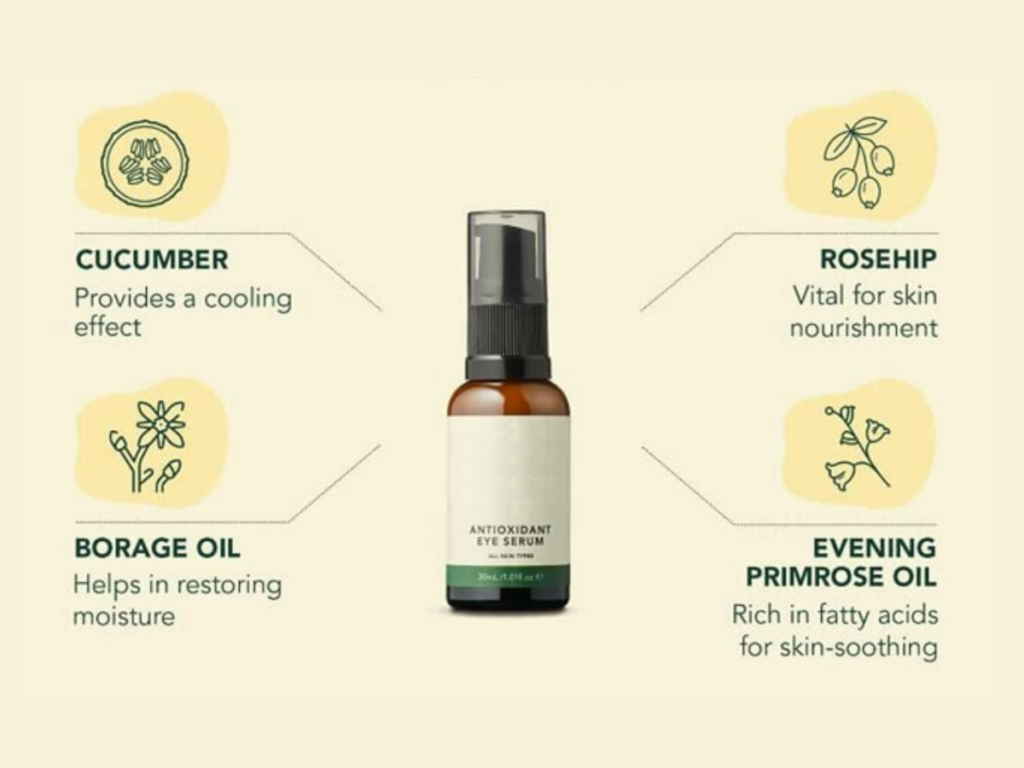
5. Natural Oils
Natural oils are a key component for nourishing and hydrating the skin around the eyes. Here are the essential factors to consider:
Benefits of Natural Oils:
- Deep Moisturization: They provide intense hydration, essential for keeping the under-eye skin soft and preventing dryness.
- Rich in Nutrients: Packed with essential fatty acids and vitamins, natural oils nourish and rejuvenate the skin around the eyes.
- Soothes Skin: Their calming properties help to reduce redness and irritation, making them ideal for sensitive under-eye skin. Your eyes will look more alive than ever!
- Improves Skin Texture: Regular use of natural oils in eye serums can enhance skin texture, offering a smoother and more radiant look.
- Anti-Aging Properties: They help in reducing visible signs of aging, such as fine lines, making them a key ingredient in mature skin formulations.
- Strengthens Skin Barrier: Natural oils contribute to the strength of the skin’s protective barrier, shielding against environmental aggressors.
- Enhances Product Efficacy: Incorporating natural oils into eye serums, as done by TY Cosmetic, boosts the serums’ hydrating and nutrient delivery capabilities.
Side Effects and Precautions:
- Allergic Reactions: While natural oils are generally safe, they can cause allergic reactions in some individuals, necessitating patch testing. Allergies are unpredictable, so it’s always a smart move to do a patch test first.
- Comedogenic Potential: Some oils might clog pores, particularly in oily or acne-prone skin types, so choosing non-comedogenic options is important.
- Quality and Purity: The effectiveness of natural oils greatly depends on their quality; compromised oils can lead to adverse skin reactions.
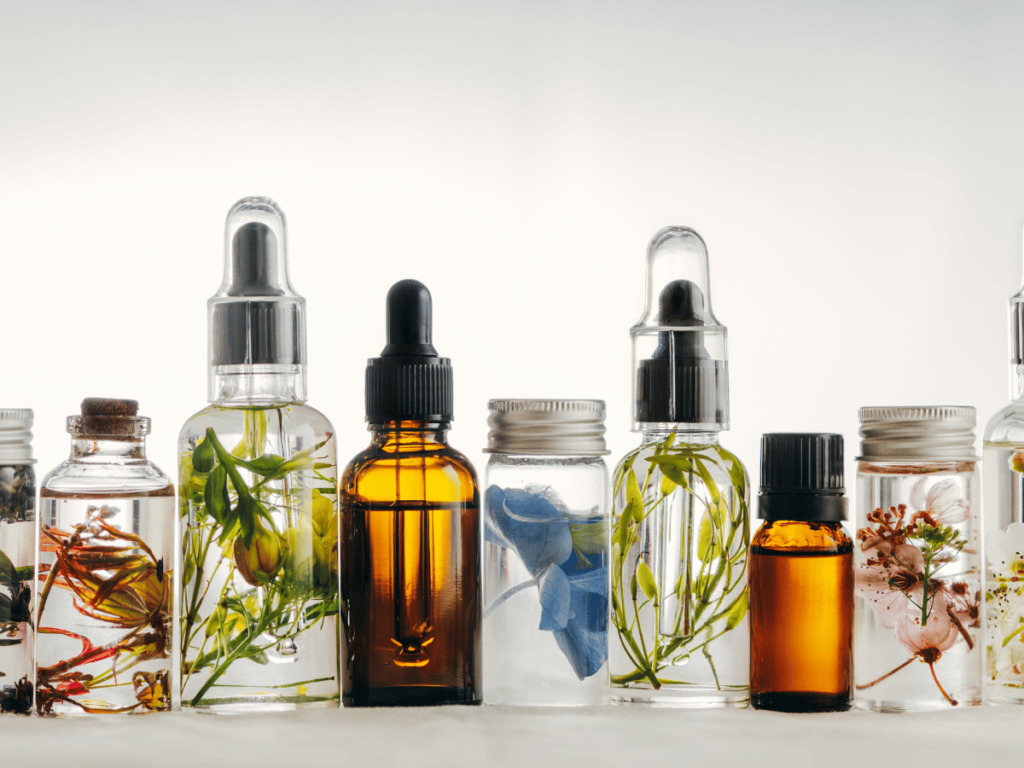
6. Vitamins
Vitamins in skincare offer a myriad of benefits, particularly for enhancing the health of under-eye skin. Here’s what to keep in mind:
Benefits of Vitamins:
- Promotes Collagen Production: Vitamins like C stimulate collagen production, essential for reducing fine lines and improving the skin’s firmness around the eyes.
- Protects Against Environmental Damage: Vitamins E and C provide antioxidant protection, guarding the delicate under-eye skin against UV rays and pollution.
- Brightens Under-Eye Area: Vitamin C is renowned for its skin-brightening properties, helping to reduce the appearance of dark circles and uneven pigmentation.
- Enhances Skin Repair: Essential for the skin’s natural repair process, vitamins support the recovery and rejuvenation of the under-eye area.
- Improves Skin Texture: Regular application in eye serums can lead to a smoother, more even skin texture, vital for a refreshed look.
- Strengthens Skin Barrier: Vitamins like B3 (Niacinamide) enhance the skin’s barrier function, protecting against irritants and moisture loss.
- Hydrating Properties: Some vitamins, like Vitamin E, offer hydrating effects, helping to maintain optimal moisture levels in the under-eye area. A real game changer for under-eye care.
Side Effects and Precautions:
- Sensitivity to Sunlight: Certain vitamins, particularly retinol (Vitamin A), can increase the skin’s sensitivity to the sun, necessitating the use of sun protection.
- Risk of Irritation: High concentrations of some vitamins, especially in sensitive areas like the under-eye, can cause irritation or redness.
- Stability Concerns: Many vitamins are sensitive to light and air, which can impact their stability and effectiveness in eye serum formulations. Make sure to store products properly to maintain the efficacy of these vital vitamins.

7. Niacinamide
Niacinamide is renowned for its skin barrier strengthening and texture-improving qualities. Here are some important things to remember of its usage in eye serums:
Benefits of Niacinamide:
- Strengthens Skin Barrier: Niacinamide enhances the skin’s barrier function, crucial for maintaining the health of the sensitive under-eye area.
- Reduces Redness and Blotchiness: Its anti-inflammatory properties help in reducing skin redness and blotchiness, offering a more even skin tone.
- Regulates Oil Production: Effective in balancing natural oil production, Niacinamide is suitable for various skin types, including oily skin.
- Minimizes Pores: It aids in reducing the appearance of enlarged pores, contributing to a smoother under-eye texture.
- Improves Skin Tone: Regular use can help even out skin tone, addressing issues like dark circles and age spots.
- Boosts Hydration: Niacinamide works in synergy with natural moisturizing factors in the skin, enhancing overall hydration. A crucial ally for the under-eye area.
- Protects Against Environmental Stress: It forms a protective barrier, guarding against pollutants and other environmental stressors.
Side Effects and Precautions:
- Minimal Irritation Risk: Generally well-tolerated, Niacinamide may cause mild irritation in rare cases, particularly in sensitive skin.
- Concentration Sensitivity: Optimal concentrations should be considered to maximize benefits without causing skin discomfort. Finding the sweet spot in concentration can make all the difference in every skincare routine.
- Compatibility with Other Ingredients: Niacinamide is versatile but should be formulated carefully to ensure compatibility with certain skincare acids.

8. Plant Extracts
Plant extracts bring a range of benefits to skincare, especially for the sensitive under-eye area. Here are some of the important aspects you should know:
Benefits of Plant Extracts:
- Antioxidant Protection: Extracts like green tea provide antioxidant benefits, shielding the skin from free radical damage and premature aging.
- Soothing Properties: Ingredients like chamomile or aloe vera offer calming effects, which can reduce under-eye puffiness and redness. A natural shield for the skin.
- Hydration Boost: Cucumber and green tea extracts, for example, add hydration, vital for maintaining the under-eye skin’s moisture balance.
- Enhances Skin Elasticity: Some extracts, like those from berries, can improve skin elasticity, helping to reduce the appearance of fine lines.
- Natural Brightening: Licorice root extract has natural brightening properties, which can alleviate the appearance of dark under-eye circles.
- Rich in Nutrients: Plant extracts often contain vitamins and minerals that nourish the skin, promoting overall health and resilience.
- Anti-Inflammatory Effects: Beneficial for sensitive or irritated skin, many plant extracts reduce inflammation and soothe the skin.
Side Effects and Precautions:
- Allergic Reactions: It’s important to consider potential allergies, as some individuals may react to certain botanical ingredients.
- Concentration Matters: The effectiveness of plant extracts in eye serums depends significantly on their concentration and formulation strategy.
- Quality and Source: Ensuring the high quality and ethical sourcing of plant extracts is key for their efficacy and safety in eye serum products. Always opt for high-quality sources to ensure the best care for the skin.

Dive Deeper Into Our Resources
Interested in discovering more? Gain instant access to our diverse range of products:
Still haven’t found what you’re looking for? Don’t hesitate to contact us. We’re available around the clock to assist you.
Conclusion
Utilizing the power of these eight key ingredients can significantly elevate the effectiveness of eye serums. This guide serves as a valuable resource for businesses aiming to enhance their skincare offerings with science-backed, high-quality components.
For those seeking expert formulation and cutting-edge skincare solutions, TY Cosmetic stands as a distinguished partner in the industry. For further inquiries or collaboration opportunities, feel free to contact us.


